Withings Scanwatch review: Beautiful hybrid smartwatch with ECG
The Withings ScanWatch is an excellent choice for those who prefer their smartwatch to look classy

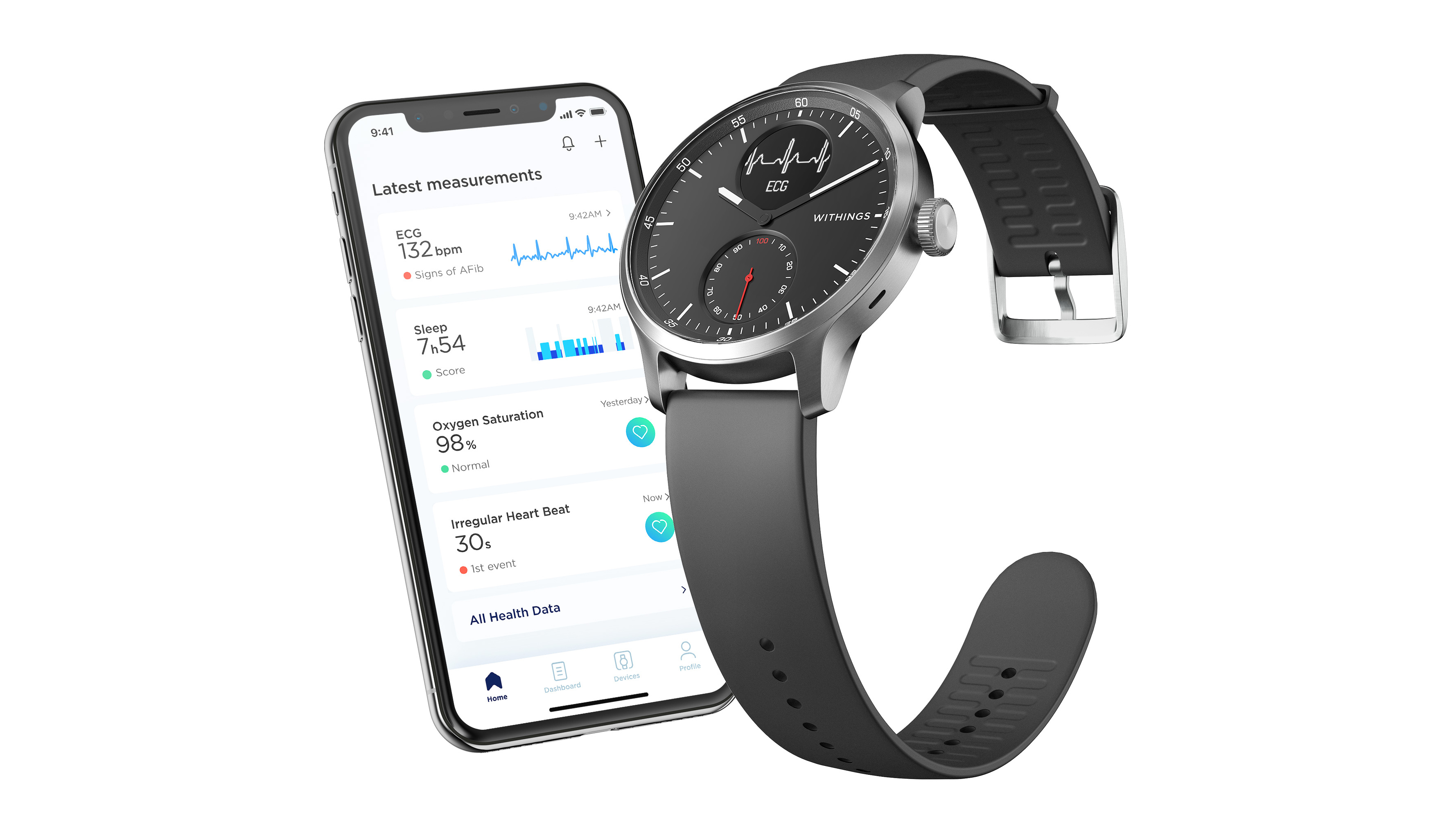
The Withings Scanwatch is a beautiful hybrid smartwatch that comes jam-packed with health sensors and features that cater to modern smartwatch owners' needs. However, it is by no means a perfect health wearable, but at least it can provide some exciting insights into sleep and heart health in general.
-
+
Premium design
-
+
Long battery life
-
+
ECG and AFib detection on the wrist
-
-
Only connected GPS
-
-
Sleep tracking is not too precise
-
-
Sport tracking is basic
Why you can trust T3

Withings ScanWatch review TL;DR: a hybrid smartwatch with advanced health features for people who don't like smartwatches.
Although we have seen similar devices in the past, recently, there's been a surge of health smartwatch releases. As sensors become more sophisticated and precise, wellness wearables become more versatile and feature-laden.
The line dividing the best fitness trackers and the best running watches is getting blurred and expanded as more health-oriented smartwatches, such as the Withings ScanWatch, get introduced to the market.
Currently, the ScanWatch is CE marked for AFib detection, both via electrocardiogram (ECG), photoplethysmography (PPG), and SpO2 measurement. ScanWatch can also detect overnight breathing disturbances with the full CE clearance for sleep apnea detection capabilities expected in late 2020.
If you are unfamiliar, CE marking "indicates conformity with health, safety, and environmental protection standards for products sold within the European Economic Area (EEA)".
According to Withings, the ScanWatch is its "most medically advanced wearable to date" and the "world's first clinically validated hybrid smartwatch to detect both atrial fibrillation (AFib) and overnight breathing disturbances". Take that, Fitbit Sense!
IMPORTANT: although smartwatch sensors are getting more precise and reliable, if you have even the slightest concerns about your heart health or sleep issues, please don't rely on smartwatches to tell you this and contact your GP or local health professional at your earliest convenience.
Get all the latest news, reviews, deals and buying guides on gorgeous tech, home and active products from the T3 experts
Withings ScanWatch review: Price and availability
The Withings ScanWatch is available in two sizes – 38/42mm case – in either black or white at Withings. Prices from £249.95 / €279.95 (38mm).
Withings states that the ScanWatch "will be available in the United States later this year, following FDA-clearance, for $279 (38mm) and $299 (42 mm) at Withings, Amazon as well as at Best Buy stores".
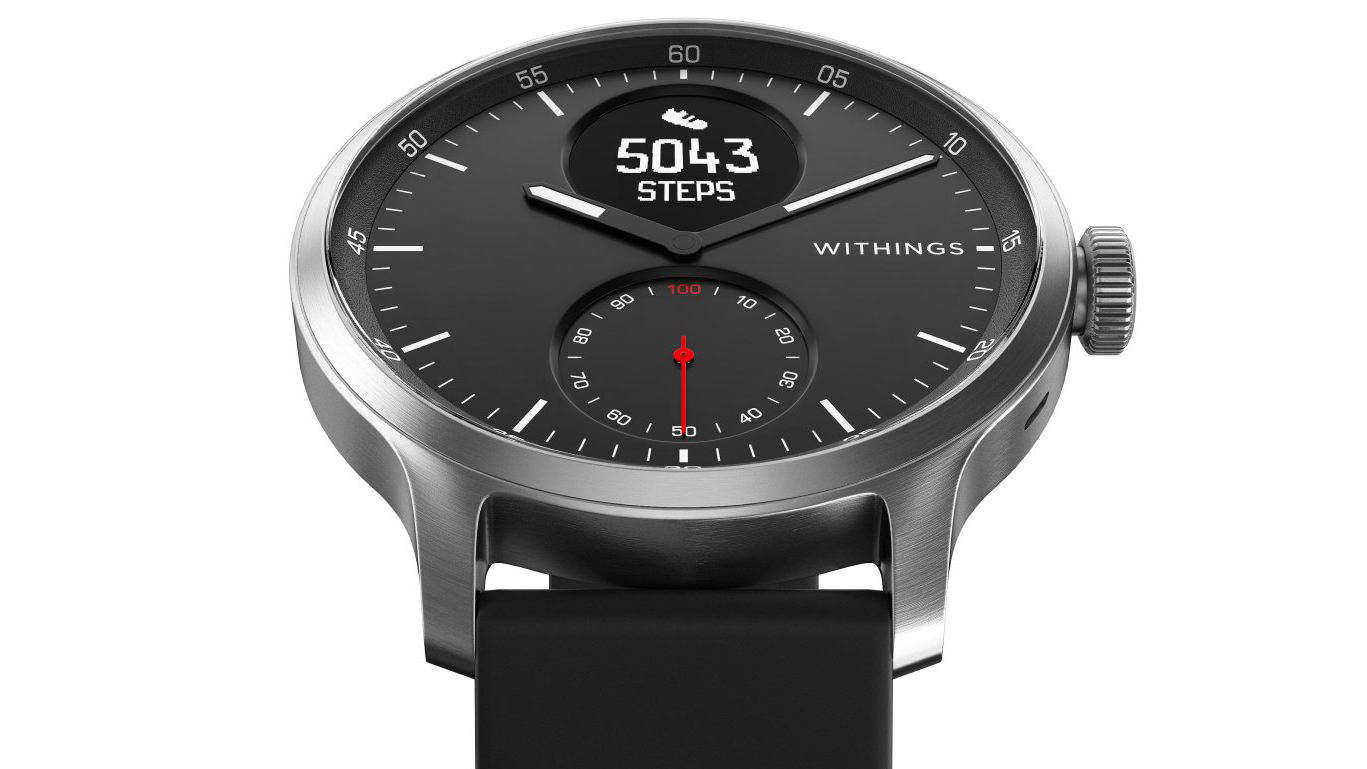
Withings ScanWatch review: Build quality and aesthetics
I love the way the Withings ScanWatch looks and feels. It just looks posh with a hint of timeless elegance. The ScanWatch has a good weight to it thanks to the sturdy 316L stainless steel case. The hybrid watch face is protected by Sapphire glass lens so it's not only handsome but also scratch- and crack-resistant.
The strap looks and feels like leather but it isn't: it's a high-performance fluoroelastomer band, apparently known for its "durability, biocompatibility and comfort". Indeed, it is comfortable to wear, especially compared to some of the silicone bands you get with cheaper fitness wearables nowadays.
The little PMOLED screen is sharp enough to display a couple of basic stats and can be controlled with the digital crown: press it down to activate the screen and turn it to scroll through the widgets. Pretty straightforward.
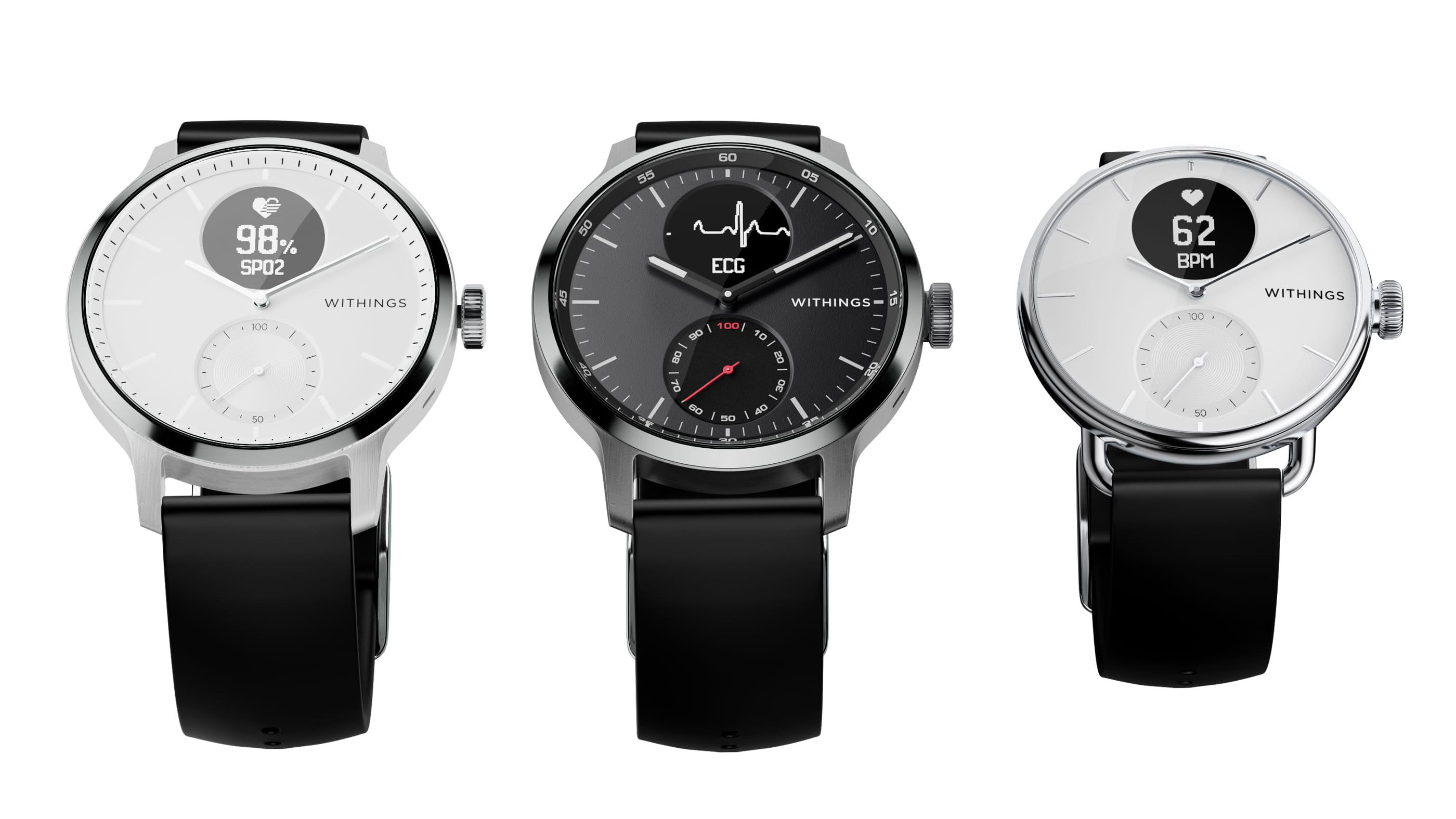
Withings ScanWatch review: ECG
ECG scans take 30 seconds and can be initiated from the watch. The results can be viewed in the Health Mate app under the 'Dashboard' tab. Withings claims that the ScanWatch "can detect if a user has AFib thanks to its ability to take a medical-grade ECG on-demand".
Of course, what people are most interested in is just how precise the ECG and sleeping sensors are but unfortunately, I haven't had medical equipment at hand to compare the data from the ScanWatch to it so I could only go by what the watch and the accompanying Health Mate app told me.
As well as recognising AFib, the sensors can also identify if the heart rhythm is too slow or too high thanks to the proactive heart scanning feature. As Withings says, "through its embedded PPG sensor, the device has the ability to monitor heart rate, which allows it to alert the user to a potential heart event even if they don’t feel palpitations".
The results of the ECG scans can be exported as a PDF and handed to your doctor. It probably won't be enough evidence for a GP to confirm a cardiac issue but it might persuade some doctors to investigate the situation further.

Withings ScanWatch review: Sleep monitoring
The other main ScanWatch feature being pushed by Withings is sleep monitoring or to be more precise, 'breathing disturbances detection' during sleep. According to Withings, "one billion people are estimated to suffer from mild to severe sleep apnea, however, 8 out of 10 people don’t know they have it".
Of course, there could be a million reason for why you aren't sleeping well, including poor diet, the lack of bedtime routine, staring at your phone screen too much, stress and the list goes on. However, if the main culprit is your breathing disturbances, the ScanWatch might be able to identify this.
You don't have to do anything apart from wearing the watch to monitor sleep and there is no need to set a sleep schedule in the Health Mate app either. This might be beneficial to add later as one night the ScanWatch detected my pre-sleep film watching on the sofa as sleeping. By setting a sleep schedule in the app these issues could be alleviated in the future.
This small glitch aside, the watch does monitor sleep pretty well. The ScanWatch not only gives you a 'Sleep Score' based on how well you slept, but it also tracks sleep duration, depth, regularity, interruptions and heart rate during sleep.
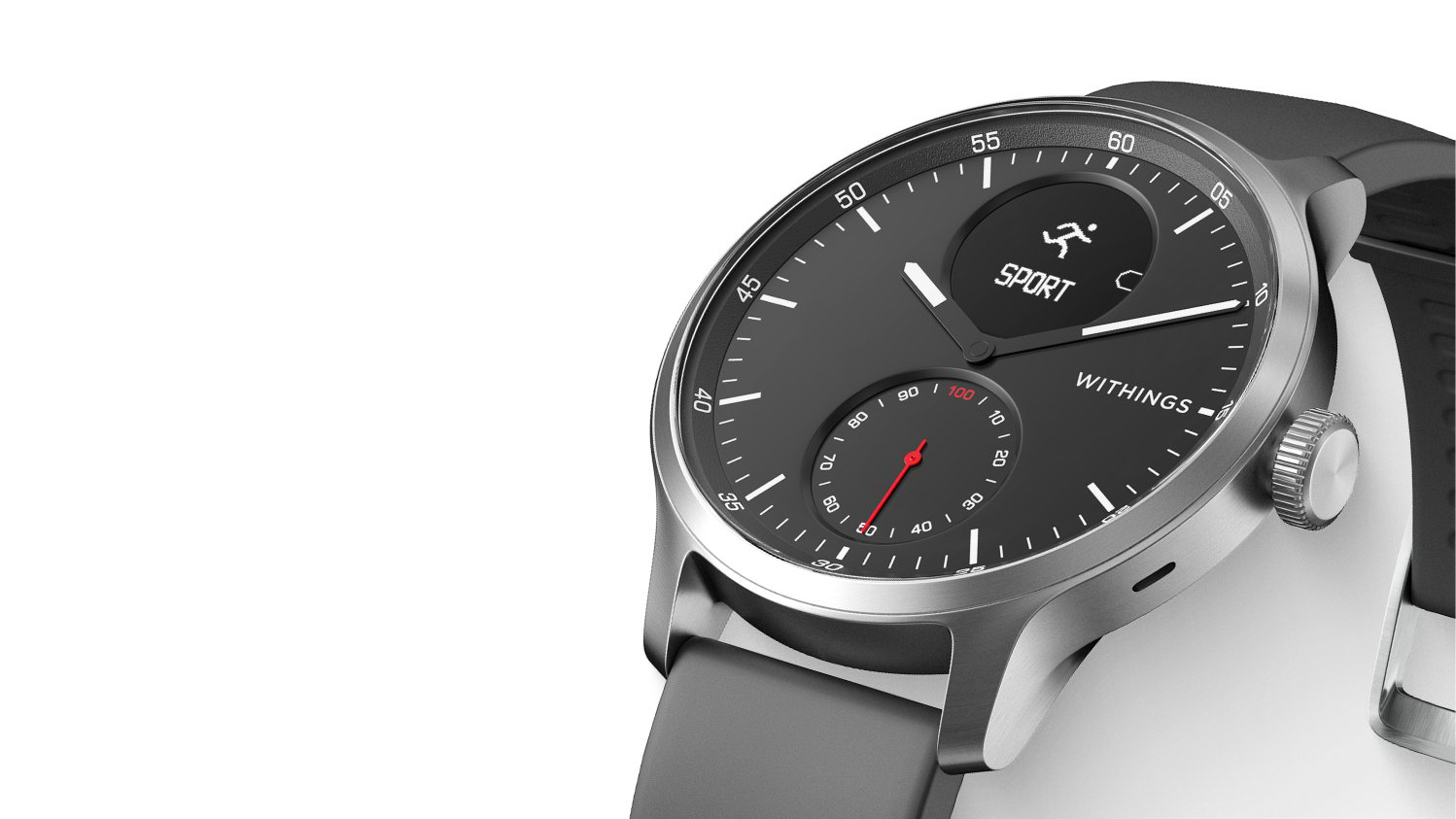
Withings ScanWatch review: Activity tracking
One thing is for sure: I won't switch from wearing the Garmin Fenix 6 Pro to the Withings ScanWatch to track workouts, but the latter is good enough for everyday activity tracking such as steps, floors climbed etc. The ScanWatch can also automatically detect certain activities such as running and cycling, although on a couple of occasions it detected of me driving the car as cycling.
And since this is 2020, the Health Mate app has a virtual achievement system where you can unlock trophies by hitting certain milestones. This feature could be improved as some of the achievements are completely random and the app doesn't say why you've got them.
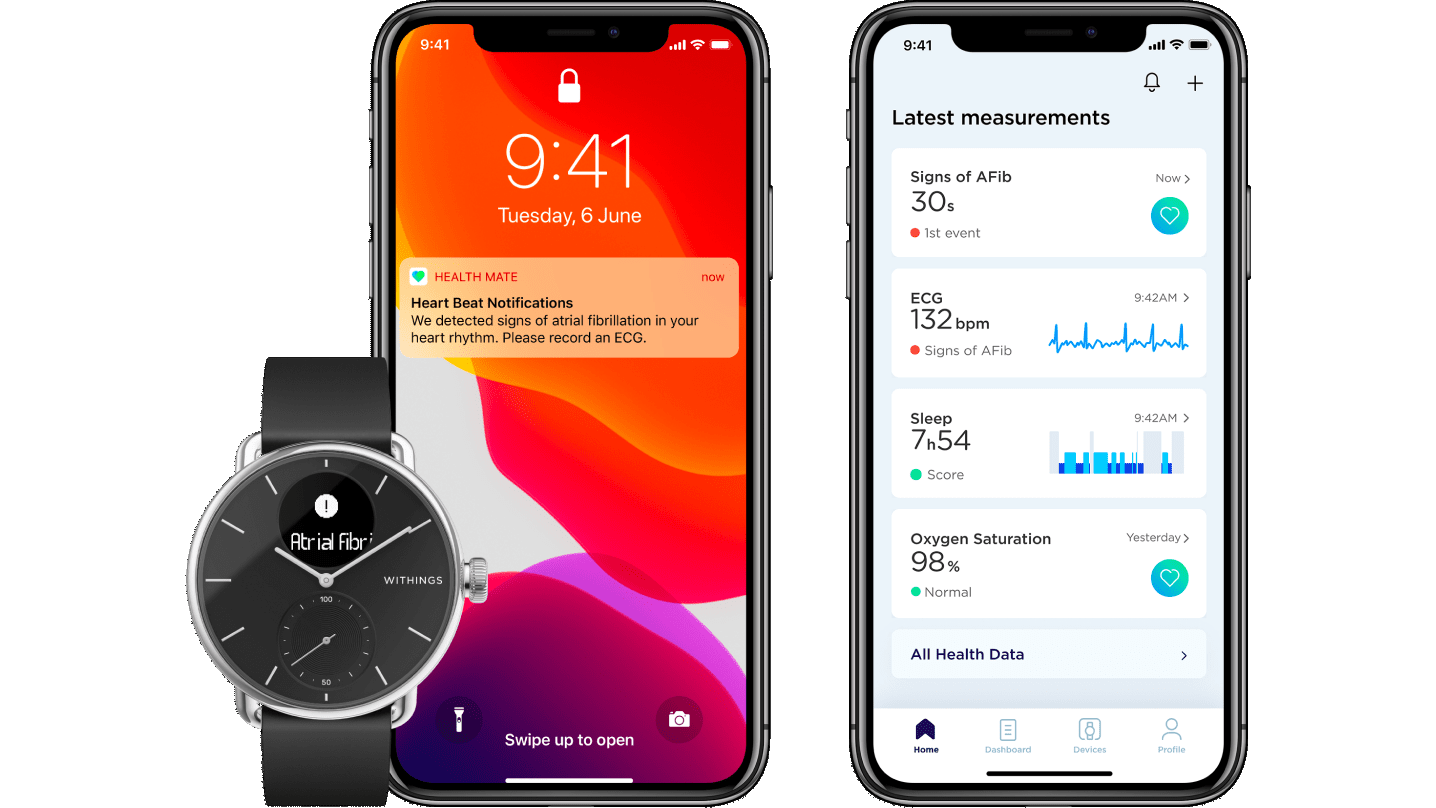
Withings ScanWatch review: Verdict
The Withings ScanWatch is a worthy successor of the Withings Steel HR and opens the door ever so slightly ajar to what might just be the future of health wearables. Just like how mobile phones became essential to everyday living in a blink of an eye, the next step in this evolution will be adding precise and connected health wearables to the system that monitor your health stats and feed the data back into your personal smart devices, which is pretty much exactly what the Withings ScanWatch does.
The ECG and sleep disturbance sensors on the Withings ScanWatch are accurate enough to receive the CE marking in the EU, so one can hope they are actually exact. The ECG readings can be exported as a PDF and sent over to doctors, too, if needed.
Through the Health Mate app, the ScanWatch can rate your sleep and give you a Sleep Score, just like how the new Fitbit Sense can provide you with a Stress Score. Both devices essentially gamify health and hopefully make complicated health metrics more digestible to everyday users.
The Withings ScanWatch is not perfect: on a couple of occasions, the automatic activity detection mistook driving a car for cycling and sitting on the sofa as sleeping. I assume as more people will feed data into the algorithm by wearing the watch and correcting these mistakes manually, the more precise the system will get eventually.
If you dislike the modern look of the Fitbit Sense and prefer a smartwatch with a more timeless design wrapped around your wrist, the Withings ScanWatch might just be the perfect choice for you, even if you haven't got any heart issues and your sleep is fine too.

Matt Kollat is a journalist and content creator for T3.com and T3 Magazine, where he works as Active Editor. His areas of expertise include wearables, drones, action cameras, fitness equipment, nutrition and outdoor gear. He joined T3 in 2019.
His work has also appeared on TechRadar and Fit&Well, and he has collaborated with creators such as Garage Gym Reviews. Matt has served as a judge for multiple industry awards, including the ESSNAwards. When he isn’t running, cycling or testing new kit, he’s usually roaming the countryside with a camera or experimenting with new audio and video gear.